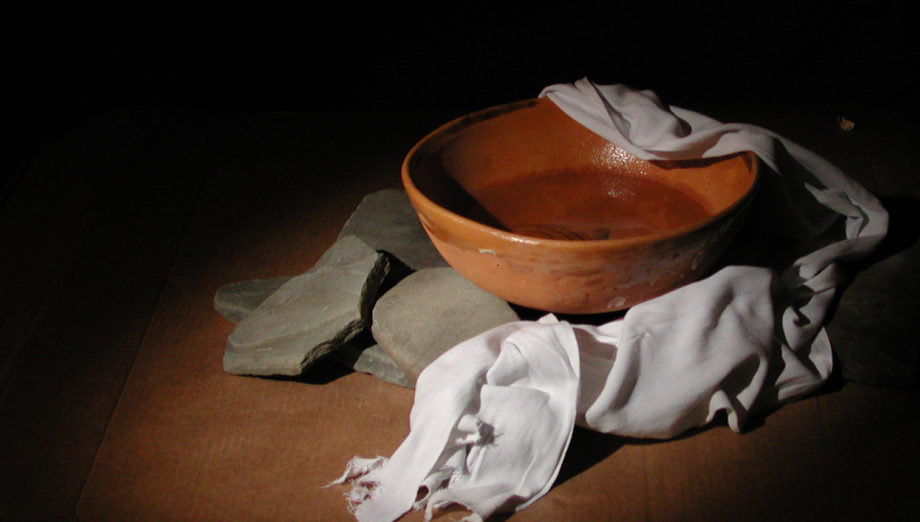South Side Church of God
|
"When he was at the table with them, he took bread, gave thanks, broke it and began to give it to them. Then their eyes were opened and they recognized him'.." Luke 24:30-31 NIV
I find it interesting that, after the resurrection, Jesus slowly revealed himself to his friends and followers. There wasn't a giant party with loud music. Jesus didn't jumped out from behind a curtain and yell "Suprise! I'm alive!" Instead, Jesus quietly encountered his people as they were going about their daily lives. Jesus met them where they were. He walked, talked, and ate with them, before they had any clue who was with them. I think Jesus took this measured approach because his friends and followers had been through the trauma of losing him. Then, came the rumors of his missing body. They were trying to figure out fact from fiction as they nursed their grief. In this scripture in Luke, Cleopas and another follower are walking to Emmaus, working through the events of Jesus death and missing body in their conversation. In compassion and love, Jesus met them on that physical and spiritual journey. They talked and walked for miles until they reached the village. They still didn't recognize Jesus at this point. They didn't know who their new friend was, yet, something about him made them want to remain in his presence. They invited Jesus to stay. And he did. This is my favorite part. When they sit down to eat, when Jesus breaks bread and gives it to the, they realize who he is. The see Jesus when they stop and sit with him. They see Jesus in the act of giving thanks. They see Jesus when he gives them bread. Maybe Jesus didn't want them to recognize him too fast. Or, maybe, by taking a break from trying to figure out the chaos, they could open their hands and hearts to receive. Maybe, by stopping and stilling their minds, they were able to really see Jesus. Jesus is here. He is alive. May we receive him. Grace and Peace, Pastor Mary I’ve been thinking about washing feet. It might sound weird to some, but I’m from a church tradition where washing feet is one of the three main ordinances (in addition to baptism and communion). It’s one of those activities we participate in because Jesus did it, the apostles taught it, and the early church practiced it. In the Church of God, the practice of washing feet is most often done on the Thursday before Easter (also known as Maundy Thursday for the Latin “mandatum” which means commandment).
In John 13, we read about Jesus washing the disciples’ feet after their last meal together. Washing feet was an ordinary necessity during Jesus’ life. It was a time of dirty and dusty roads, when animals walked along side people to carry cargo and passengers. Of course, feet would need to be washed. This wasn’t sought after work. Feet washing was the job of servants, those low on the socioeconomic ladder. When Jesus washed his disciples’ feet, he took the position and role of a servant. It was a radical thing, to willingly serve others. But Jesus served them by doing something ordinary, by washing their feet. Jesus found the sacred in an everyday activity. Then Jesus commanded the disciples to do the same. Because the holy work of service wasn’t reserved for the teacher, it was for the followers too. Jesus instructed them to serve each other and love each other by washing each other’s feet. Jesus finishes his teaching by saying, “Now that you know these things, you will be blessed if you do them” (John 13:17 NIV). I have been blessed by doing these things. Feet washing a celebrated tradition at Auglaize Chapel Church of God, where my faith was formed. We gathered as a congregation on Maundy Thursday where we ate beef stew and unleavened bread. We took communion together. When the meal was finished, the tables were cleared and chairs were arranged in two big circles (one for men and one for women). Long towels and basins of warm water were placed in the middle of the circles. A woman would tie a towel around her waist and carry a basin to the feet of another woman. There she would kneel and gently wash the another's feet. When finished, they stood together and embraced. And the one whose feet had been washed became the feet washer. We sang hymns and shared memories and testimonies. There were often tears of love shed. I cherish those memories of being in that circle, surrounded by women practicing the holy work of service. Now I’m the pastor of a church with Maundy Thursday services. But this year, due to the social distancing required to keep people healthy and the Covid-19 virus from spreading, we will not be gathering to wash each other’s feet. I’ve been a little sad about that (let’s be honest, I have been really sad about a lot of missed gatherings). I will miss the blessing of washing another’s feet and the humbling moment of having my feet washed. I will miss singing the songs and sharing the testimonies together. What I will miss isn’t an ordinary activity, it’s one of those special days on the Christian Calendar that I look forward to each year. In missing all that, I’m reminded that Jesus found the holy in the ordinary. Last year we moved into a home after living in an apartment for a year and a half. Our church people, my husband’s work friends, and my mom were our helpers. They moved furniture and boxes from a third-floor apartment to a moving truck and from a moving truck into our house. When the truck was loaded, a parishioner came up to me and said, “some of us have been talking and we are going to come and do the final cleaning of your apartment for you.” In that moment, I wanted to refuse the generous offer. There was something unbearable about the thought of members of my congregation cleaning the accumulated dirt behind the couch, mopping the floors, and cleaning my shower and toilets. It felt too personal. I felt too vulnerable. I would much rather clean someone else’s house than have them clean mine. In that thought, I realized, that my friends were offering to wash my feet. They were offering me a blessing, something sacred in the ordinary. I humbly accepted. While we are in a time when churches cannot gather for Maundy Thursday, Good Friday, or Easter (and the weeks following), I think we are still being commanded by Jesus to wash each other’s feet. We cannot do it literally, but we can make ordinary moments holy by serving and loving each other. Maybe, washing our hands to keep others well is a sacred act of service. Maybe, making sure our neighbors have food and toilet paper is holiness in action. Maybe, staying home when we want to be together is grace. Maybe, showing extra kindness and patience towards the essential workers in our hospitals, grocery stores, factories, warehouses, and restaurants (who are collectively washing the feet of our country right now), is love. I hope next year, on Maundy Thursday, I will be able to sit in a circle with other believers, sing songs, testify to the goodness of God, and wash each others feet. But this year, our task, as followers of Jesus, is to wash feet in another way. We are being called to participate in the sacred work of service and love in ordinary activities during extraordinary times. And as we look for ways to wash the feet of others, let us take our own shoes off, because our feet need washed too. “Now that you know these things, you will be blessed if you do them” (John 13:17 NIV). Grace & Peace Pastor Mary |
ArchivesCategories |


 RSS Feed
RSS Feed